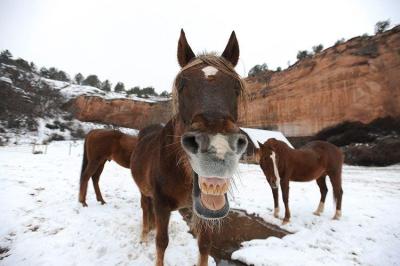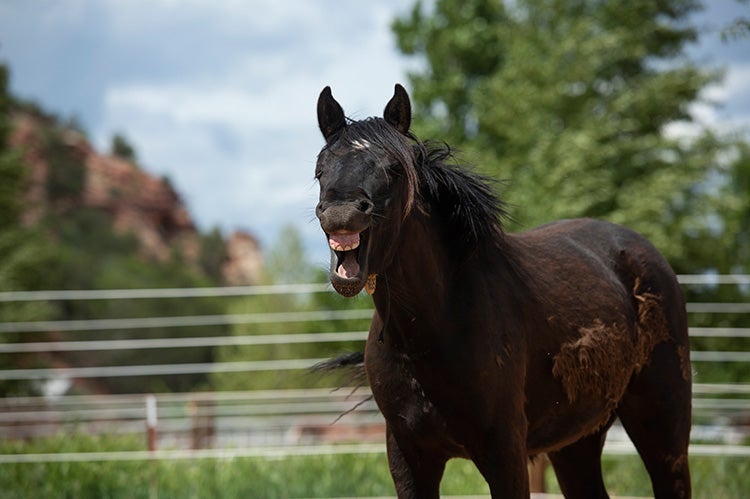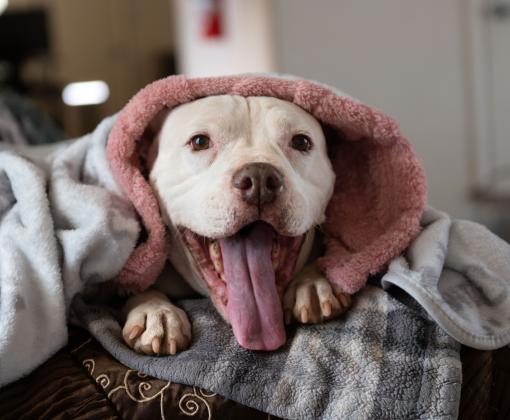
Equine Dentistry: How to Take Care of Horses' Teeth
As part of overall horse care, it's important to be aware of equine dentistry — i.e., how to take care of horses' teeth.
Horses evolved to spend almost all day grazing — using their teeth to chew up hay, grass, or other food as the first step in the digestive process. In fact, horses have adapted to long hours of grazing in some unique ways. They have what’s called hypsodont teeth, which are teeth that continuously erupt at around 3 to 4 millimeters per year to compensate for the continuous grinding of food.
Our domestication and management of horses has had a massive impact on their chewing and digestion. For instance, it is often impossible to provide or even mimic an environment that allows horses to graze constantly. Consequently, because of the continuous eruption in their teeth and the lack of adequate grazing, horses’ teeth can wear down in patterns that result in razor-sharp points. This can cause trauma to the mouth and ulcerate soft tissues.
Horse dental problems can lead to pain and even behavioral challenges. In extreme cases, horses who can’t properly chew their food don’t get enough nutrients. They might drop weight or become underweight and even emaciated.
Equine dentistry should be taken seriously. Here are some frequently asked questions about horse dental care.

See how your community is doing
Check Out Best Friends’ Horse Haven
What does it mean to float a horse's teeth?
Floating is part of basic horse dental care and maintenance. Horses are sedated, and a veterinarian or equine dentist uses a rasp, or file, to remove sharp points from the teeth. Why is this procedure on horses' teeth called floating? The name comes from the term for leveling or smoothing out concrete or mortar.

How often should horses' teeth be floated?
The frequency of oral and dental exams in horses is based on many different factors. In general, equine veterinarians recommend an oral/dental exam twice a year until the horse reaches the age of 5. From 1 to 5 years old, the horse’s mouth is changing dramatically. And if problems arise, early intervention is vital to minimize the long-term impact of developmental dental problems.
Between the ages of 5 to 15 years, veterinarians usually advise an annual oral/dental exam. Once horses reach their retirement age (usually late 20s), veterinarians generally advise going back to twice yearly oral/dental exams. During this time, a horse’s teeth begin to wear out or expire and are less effective at grinding food, so minor adjustments to teeth and diet need to be performed more frequently. Each horse is an individual, of course, and a horse’s dental plan will be based on their particular needs.
Do horses lose their teeth?
Horses erupt 24 deciduous (baby) teeth between 1 and 5 years old. They can also lose molars as the teeth begin to expire, which happens when horses are in their late 20s and beyond.
What are signs of a horse having dental problems?
Dropping bits of semi-chewed food (called “quidding”) is one of the first signs of a dental problem in a horse. You might also see changes in facial and jaw symmetry, weight loss, slow or painful chewing or eating, and/or a mouth odor. More subtle signs can include changes in behavior, reluctance to perform, and pain associated with the bit.
